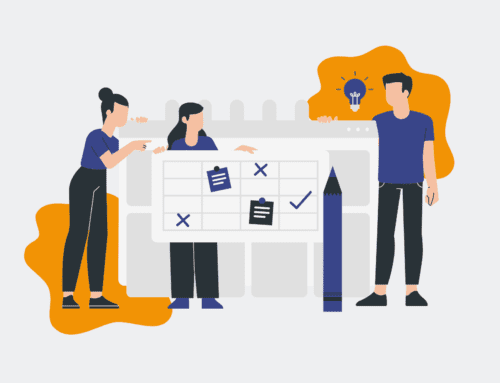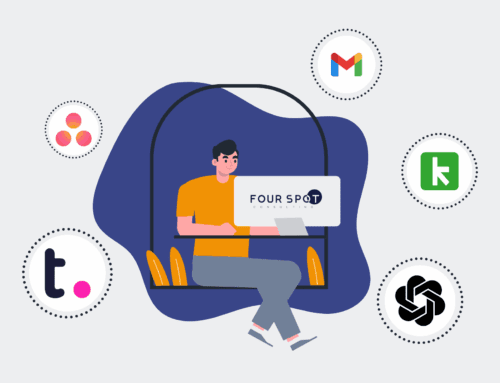How AI Uncovers Transferable Skills from Diverse Backgrounds in Candidate Resumes
In today’s competitive talent landscape, the traditional approach to resume screening often falls short. Recruiters, buried under a mountain of applications, frequently rely on keyword searches and rigid criteria, inadvertently overlooking highly capable candidates whose experience doesn’t fit a conventional mold. This narrow lens is particularly problematic when seeking to build diverse, resilient teams that thrive on varied perspectives. At 4Spot Consulting, we understand that true potential often lies hidden beneath the surface of a resume, waiting for the right tools to bring it to light. This is precisely where AI-powered solutions are revolutionizing the way businesses identify transferable skills, transforming diverse backgrounds from potential hurdles into significant assets.
The Evolving Definition of “Qualified”
For decades, the standard hiring playbook emphasized direct experience. If a job description called for five years in X role, a candidate with four years, or a similar role in a different industry, might be instantly dismissed. This rigid interpretation not only limits the talent pool but also perpetuates a cycle of hiring for sameness. Forward-thinking organizations recognize that innovation, adaptability, and problem-solving prowess often stem from individuals who have navigated unconventional career paths, faced unique challenges, or thrived in environments vastly different from their peers. These experiences cultivate a rich tapestry of skills that are profoundly valuable but notoriously difficult to quantify through traditional screening methods.
The challenge for HR and recruiting leaders is how to effectively identify these nuanced capabilities at scale. Manual resume review is time-consuming, prone to unconscious bias, and highly inefficient. It’s a low-value activity for high-value employees. This bottleneck often forces teams to default to the path of least resistance: looking for easily recognizable keywords rather than deeply analyzing the breadth of a candidate’s journey.
Beyond Keyword Matching: AI’s Deeper Dive into Resumes
The true power of AI in recruitment isn’t just about faster keyword matching; it’s about sophisticated semantic analysis and pattern recognition. Modern AI algorithms, particularly those leveraging Natural Language Processing (NLP) and machine learning, can do far more than simply count instances of a specific term. They can interpret context, identify analogies, and infer capabilities that are not explicitly stated. For instance, an AI system can:
- **Deconstruct Project Contributions:** Rather than just seeing “Project Manager,” AI can analyze project descriptions to identify leadership, stakeholder management, risk mitigation, or cross-functional collaboration skills, even if the title was “Senior Analyst.”
- **Recognize Industry-Agnostic Skills:** Experience managing complex logistics in healthcare might directly translate to supply chain management in manufacturing. AI can map these underlying skill sets across seemingly disparate industries, identifying commonalities human reviewers might miss.
- **Identify Soft Skills Through Achievements:** While soft skills are notoriously hard to quantify, AI can infer qualities like resilience, creativity, or adaptability by analyzing descriptions of overcoming challenges, innovative solutions, or successful pivots described in a candidate’s professional narrative.
- **Uncover Learning Agility:** Candidates who demonstrate a history of rapidly acquiring new skills, pivoting roles, or excelling in diverse environments signal strong learning agility—a critical trait in fast-evolving businesses. AI can pinpoint these patterns across a candidate’s entire career arc.
This deep analytical capability allows businesses to move beyond superficial markers and focus on the fundamental competencies and potential that truly drive success. It means a candidate with a background in teaching might be flagged for excellent communication and organizational skills relevant to a client success role, or a small business owner’s resourcefulness could be identified as ideal for a startup environment.
Transforming Diverse Backgrounds into Competitive Advantages
When AI is used to uncover these transferable skills, the benefits ripple throughout an organization:
Expanding the Talent Pool
By looking beyond traditional qualifications, businesses gain access to a vastly larger and richer pool of candidates. This isn’t just about filling roles; it’s about finding the *best* talent, regardless of their career’s meandering path. It reduces the reliance on a shrinking pool of “perfect fit” candidates, alleviating recruitment bottlenecks and reducing time-to-hire.
Enhancing Diversity and Inclusion
Bias, both conscious and unconscious, is a pervasive challenge in hiring. AI, when properly trained and implemented, can introduce a layer of objectivity that human reviewers struggle to maintain. By focusing solely on skills and potential inferred from experience, AI helps level the playing field for candidates from underrepresented groups, non-traditional educational backgrounds, or those with resume gaps, fostering a truly inclusive hiring process. This directly contributes to a more diverse workforce, bringing fresh perspectives and innovative solutions to complex business problems.
Boosting Organizational Agility and Innovation
Teams composed of individuals with varied experiences and skill sets are inherently more adaptable and innovative. They bring different problem-solving approaches, challenge assumptions, and generate a wider array of ideas. By leveraging AI to identify these hidden gems, businesses can intentionally cultivate teams designed for resilience and breakthrough thinking, giving them a significant competitive edge in dynamic markets.
Strategic Automation for HR Leaders
For HR and recruiting leaders, integrating AI into the resume screening process isn’t just about better hiring; it’s about strategic automation. It frees up valuable time for high-value activities like candidate engagement, strategic workforce planning, and building robust talent pipelines. Imagine an HR team no longer sifting through hundreds of resumes for keywords, but instead focusing on interviewing thoroughly vetted candidates whose transferable skills have been intelligently surfaced by AI. This transforms HR from a reactive administrative function into a proactive, strategic partner driving business growth.
The future of recruitment lies in intelligence, not just volume. By harnessing AI to meticulously analyze candidate resumes, businesses can transcend superficial qualifications, uncover invaluable transferable skills from diverse backgrounds, and build truly exceptional teams. This is not about replacing human judgment but augmenting it, allowing us to see the full spectrum of potential in every applicant.
If you would like to read more, we recommend this article: Mastering AI-Powered HR: Strategic Automation & Human Potential








